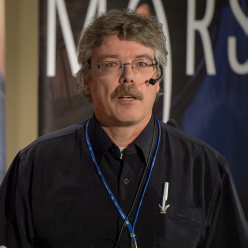Exploring the Limits of Life on Earth
Dirk Schulze-Makuch | Technical University of Berlin, German Research Centre for Geosciences, & Leibniz Institute of Freshwater Ecology and Inland Fisheries
Abstract: Life on Earth has adapted to multiple environmental stresses including lack of water, temperature and pressure extremes, and high salinities. In order to understand the effect of these stresses on possible life on other planets we have to go to extreme locations on Earth to test life's adaptability. The astounding adaptability of life, however, is not restricted to microbial life but also extends to multicellular and complex life. In the second part of the talk Dirk will elaborate on the question whether we can expect complex and macroscopic life on a planet if habitable conditions occur on that planet for extended periods of time or whether the complex biosphere we experience on Earth is likely to be unique.
Dirk Schulze-Makuch received his Ph.D. at the University of Wisconsin- Milwaukee. He had afterwards a fellowship at the NASA Goddard Space Flight Center, and worked as Assistant Professor at the University of Texas at El Paso and as Associate and Full Professor at Washington State University before coming back to Germany. He still holds an Adjunct Professorship at
Washington State University and Arizona State University, Dirk published nearly 200 papers and 8 books in the field of planetary habitability and astrobiology, including the 3rd edition of Life in the Universe: Expectations and Constraints. In 2010 he received the Friedrich-Wilhelm Bessel Award from the Humboldt Foundation for extraordinary achievements in theoretical biology.


